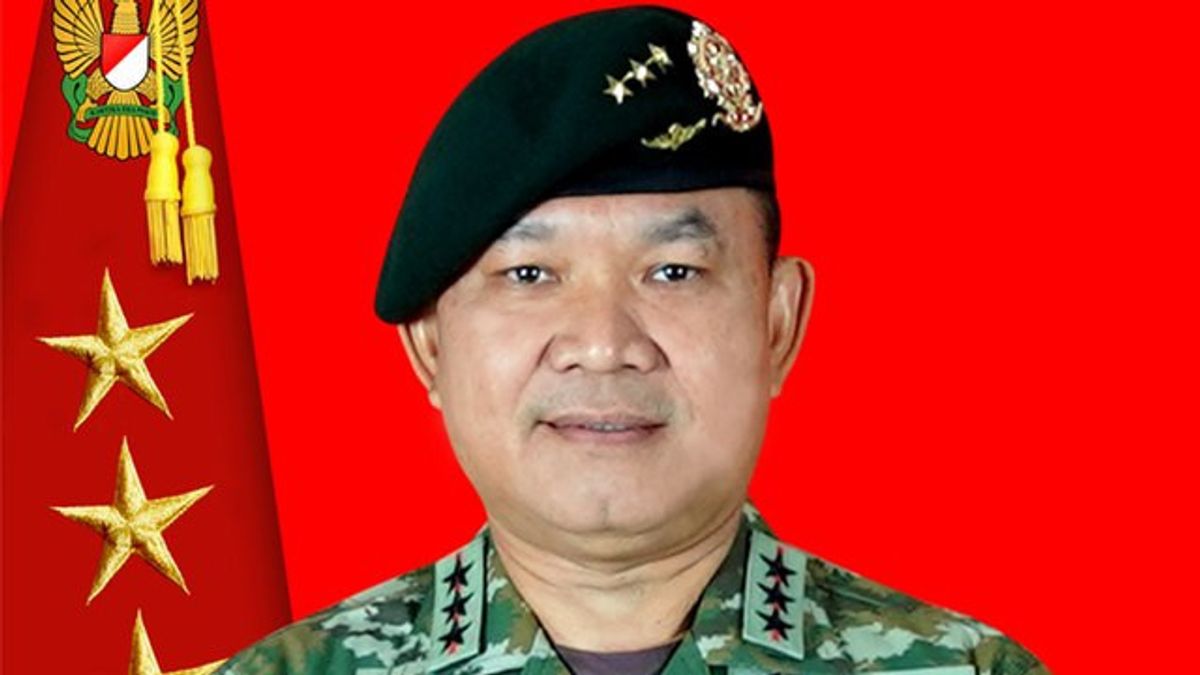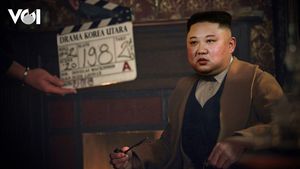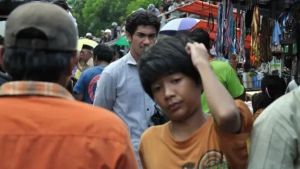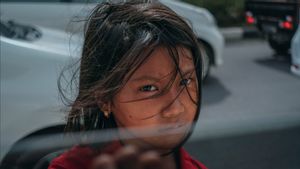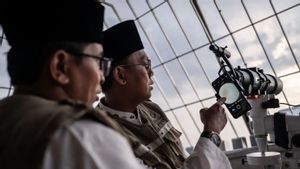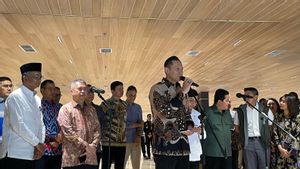JAKARTA - The words of the Army Chief of Staff (KSAD) General Dudung Abdurachman who did not hesitate to prevent radicalism in a way similar to the era of President Soeharto became the public spotlight. Apart from being considered inappropriate for the main functions of the TNI, Dudung's thinking is also considered obsolete.
In an effort to prevent radicalism, General Dudung will order all Indonesian Army soldiers to intervene. The former Pangdam Jaya will ask the TNI AD soldiers to the lowest level or Babinsa to be sensitive to the development of the situation.
Dudung added that he would not hesitate to implement a system like the era of President Soeharto. However, he did not explain it in detail.
"I said, if there is information, I will apply it as in the days of Mr. Soeharto. The babinsa must know, even if the needle falls, he must know," said Dudung as quoted by KompasTV. So how did radicalism in the New Order era actually look like?
New Order era radicalism
Oki Wahju Budijanto and Tony Yuri Rahmanto in their research entitled Pencegahan Paham Radikalisme Melalui Optimalisasi Pendidikan Hak Asasi Manusia di Indonesia (Prevention of Radicalism Through Optimizing Human Rights Education in Indonesia, 2021) revealed that radical organizations made their debut at the beginning of the reform era. According to him, before the reform was announced, radical social organizations could not show their existence.
"They seem to have grown along with democratization since the end of the Suharto regime. The radical organizational movement seems to be a virus that undermines the spirit of democracy in Indonesia," wrote Oki et al. "When the New Order was just history, radical movements quietly infiltrated scientific forums such as on campuses."
In line with that, the Chancellor of UIN Sunan Ampel Surabaya, Masdar Hilmy in Religious Radicalism and Political Democracy in Indonesia Post-New Order (Radikalisme Agama dan Politik Demokrasi di Indonesia Pasca Orde Baru, 2015) said the growth of the post-New Order radicalism movement could not be separated from an increasingly open regime change. "Without the presence of the Reformation era, it is almost certain that hardline groups will not dare to come to the surface due to political repression by the ruling regime," he wrote.
The emergence of religious radicalism movements, whether clandestine such as Jamaah Islamiyah or overt ones such as Laskar Jihad, Laskar Jundulloh, and others is a derivative impact of the increasingly open political and democratic climate after the fall of the New Order. "The political openness introduced by President Habibie, President Soeharto's successor, has proven to give new enthusiasm for community groups to voice their various political aspirations and interests freely and freely."

According to Masdar, the current political openness does not only open up opportunities for religious sects or ideologies, but also antithesis movements against them. He gave an example of the emergence of the PANGUNCI (Local Arak Drinkers Association) group which clearly does not represent religious sects. "Even the emergence of this kind of religious group can be interpreted as an antithesis to the religious movement that is rife in this cultural city."
In addition to the increasingly open political channels, Masdar said there were also those who linked the emergence of radicalism movements with the weakening state of the country. "A series of violent incidents and conflicts with religious nuances emerged during the fall of the New Order regime. The bombings in Jakarta (2000) and Bali I (2002) also appeared in the early days of the Reformation era."
Indeed, in the era of President Soeharto, the arrangement of religious life in the public sphere was much stricter. At that time, Indonesia also implemented an anti-subversion law. This law is considered to prevent the seeds of radicalism from growing.
But in practice, the law is also considered to be shackled to the independence and freedom of the public. "Along with the fall of the New Order and the change of regime to the Reformation era, this law has become one of the aspirations to be revoked," Masdar wrote.
Irrelevant
Returning to the issue of TNI General Dudung Abdurachman's remarks, Political Observer from Al Azhar University Indonesia, Ujang Komarudin, assessed that from the words of KSAD Dudung, it could be that he wanted to build a construction of romance during the New Order era. Because at that time, the TNI was the ruling institution.
"Maybe because in the New Order era the TNI was in power. The Army Chief of Staff could want to build a romantic construction of the New Order era," said Ujang when contacted by VOI.
However, Ujang considered that the idea of KSAD Dudung applying the New Order style to prevent radicalism was an old-school idea. After all, the issue of radicalism is not the TNI's domain, so Ujang appealed to Army Chief of Staff Dudung to leave the matter to the police alone.

Indeed, according to the mandate of the Terrorism Law, in essence, the authority to overcome radicalism is the main function of the police and the National Counterterrorism Agency (BNPT). For this reason, the TNI, said Ujang, should just focus on its own main functions.
"That's an old-school idea. New Order-style thoughts. And about radicalism, it's the police's job. Let the police work in a professional way," said Ujang. Especially in the New Order era, one way to beat radicalism was to use the anti-subversion law.
Executive Director of Indonesia Political Review (IPR) Ujang Komarudin said such a policy was not suitable to be applied in the current era. If such a law is implemented, innocent people can be accused of being subversive if the government doesn't like it.
"The law or regulation must be in accordance with the context and era. In the past, the New Order was considered ideal, because it was authoritarian. Not as democratic as it is today. It used to be arbitrary, now many are supervising it. It's not good, it's not suitable," concluded Ujang.
*Read other information about the TNI AD, read another interesting article from Ramdan Febrian Arifin.
Other NEWS
SEE ALSO:
The English, Chinese, Japanese, Arabic, and French versions are automatically generated by the AI. So there may still be inaccuracies in translating, please always see Indonesian as our main language. (system supported by DigitalSiber.id)
